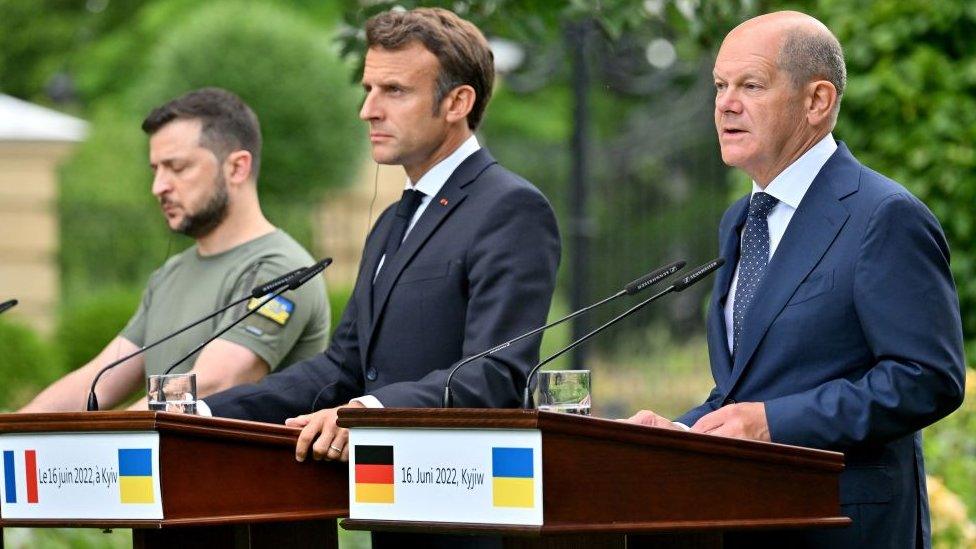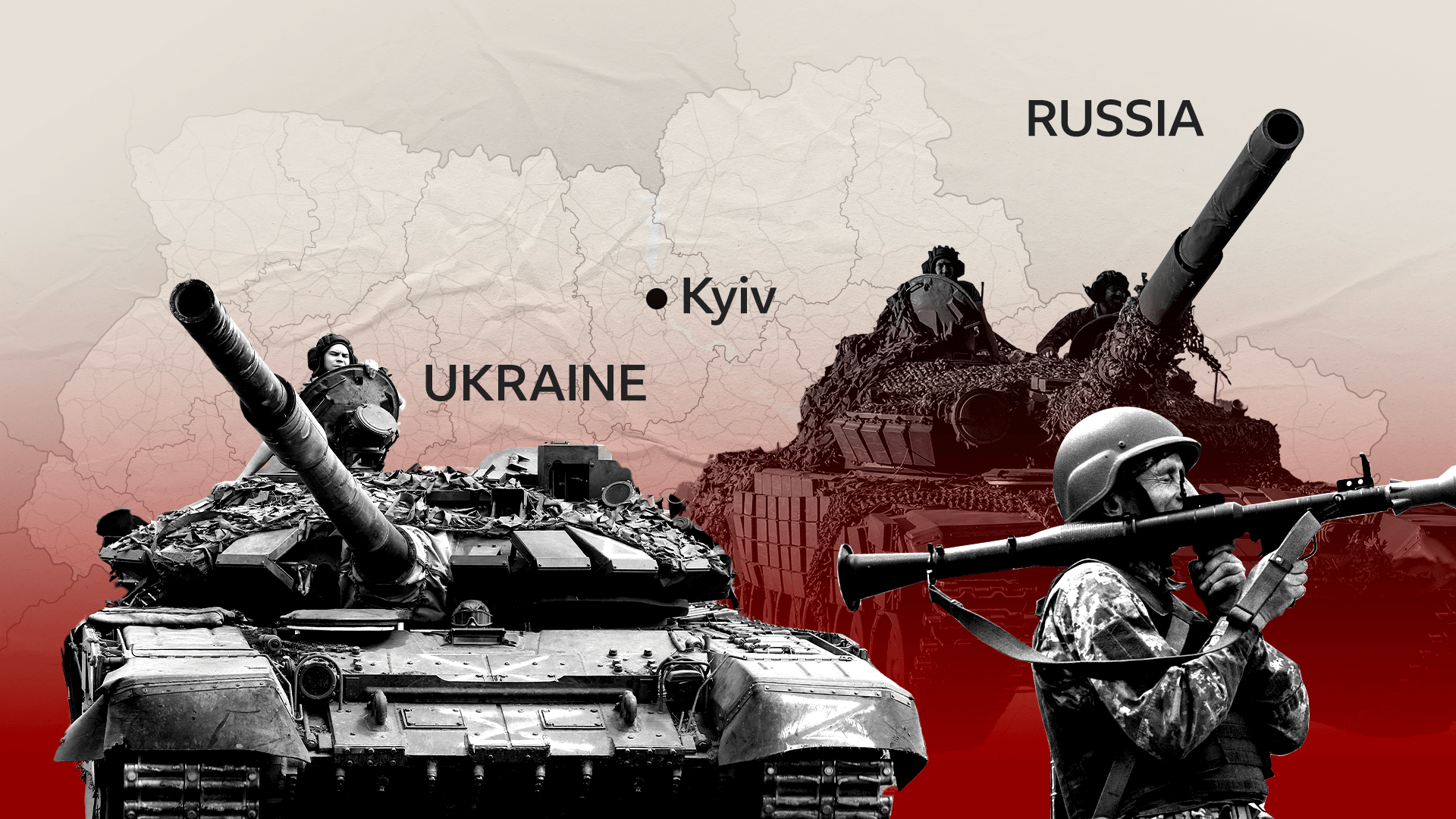Blinken flies in to rally Western support for Ukraine war
- Published
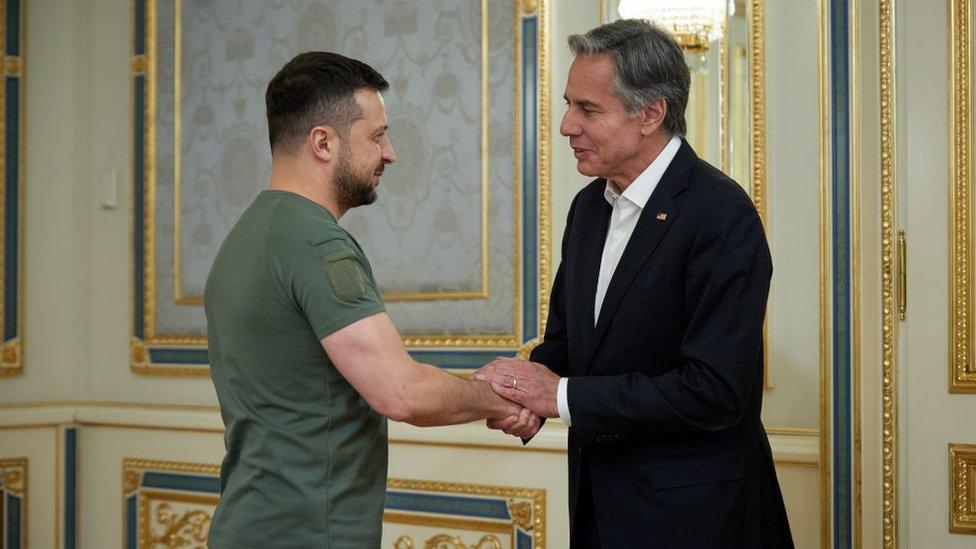
The US has announced $2.8 billion in military aid for Ukraine
President Joe Biden wants to end America's "forever wars", but he is pumping billions of dollars into one that could grind on for a long time.
After six months Russia's invasion of Ukraine is entering a challenging new phase. Europe is facing a hard winter of high prices and fuel shortages because of the fallout from sanctions against Moscow and President Vladimir Putin's suspension of Russian gas supplies.
Meanwhile, Ukraine has launched a counteroffensive in the south of the country to try to break a stalemate on the battlefield and convince struggling allies it's worth staying the course.
Secretary of State Antony Blinken's visit to Kyiv was designed to underline that message by emphasising the Americans are committed to seeing this through.
He announced a further $2.8bn (£2.4bn) in military aid during a meeting with the Ukrainian leader Volodymyr Zelensky, after entering the presidential building through a series of dark hallways fortified with sandbags. (He also visited children injured by Russian bombardments and toured a devasted section of nearby Irpin - seeing first-hand the scorched buildings and scattered debris left behind by Russian shelling of the city).
The assistance package includes long-term investments to bolster the security of Ukraine and its neighbours. It also delivers more weapons, part of a surge of US support for Ukraine's effort to recapture territory taken by the Russians, which Mr Blinken said was "proving effective".
For Washington, of course, the stakes are bigger than Ukraine. The Biden administration - and a bipartisan majority in Congress - believes the Russian invasion threatens to rip up the rules of the liberal global order largely established by the US after World War Two.
Despite that President Biden's long game is not directed at a fast and decisive Ukrainian victory. His arms shipments have been calibrated by the fear that tensions could escalate into direct conflict with Russia.
Some analysts and lawmakers have described the goal as preventing defeat rather than powering a win, and demanded the president be more aggressive. Others have said a win isn't possible and urged him to press for a ceasefire and a negotiated settlement.
The administration argues that Russia isn't serious about finding a diplomatic solution and Ukraine doesn't have the leverage to press for one.
"The Ukrainians don't have a viable map from which to negotiate," said a senior state department official. "Twenty percent of their territory has gone. Something like 30 percent of their industrial and agricultural potential is gone."
"We are focused on helping ensure Ukraine prevails in this war," said a second senior US official, "so that when we get to the day where we move to a negotiated settlement, Ukraine is in the strongest possible position."
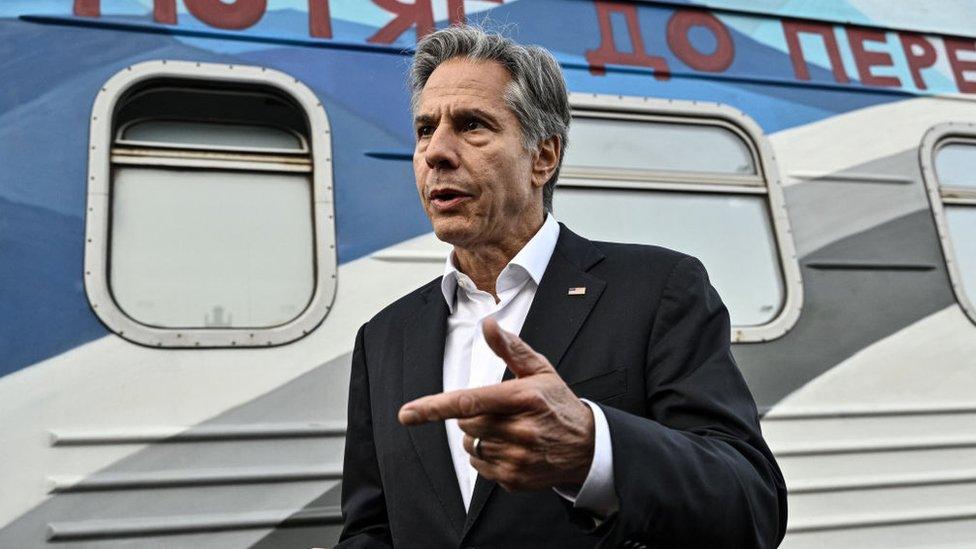
Blinken's trips come before the annual UN General Assembly
Mr Blinken is now heading to Brussels to consult European allies, some of whom recently announced economic relief packages to try to stave off social unrest as the days grow colder.
His visit to Ukraine will give him a "fresh feel, a finger-tip assessment" to try to hold together Western support for Ukraine heading into the annual UN General Assembly, said the first US official. Allies need to present "a narrative that the world is facing adverse consequences" because of Mr Putin's war.
The Russian president claims the adverse consequences are the result of US-led aggression against Russia, aimed at preserving an unjust world order beneficial only to the West.
His counter-narrative has a fair bit of traction with developing nations, many of whom have at least stayed silent on the conflict even though they are grappling with food insecurity amplified by it. Perhaps half the world, including heavyweight nations such as China, have refused to impose sanctions on Russia.
"The trans-Atlantic community is making sacrifices, the global south is feeling the pain," said the US official. "If we don't stay the course the architecture that supports a free and open world will be even more contested than it was."
The hardships of the coming winter could do much to determine who prevails, on the battlefield and with the narratives that shape it.
Related topics
- Published8 September 2022
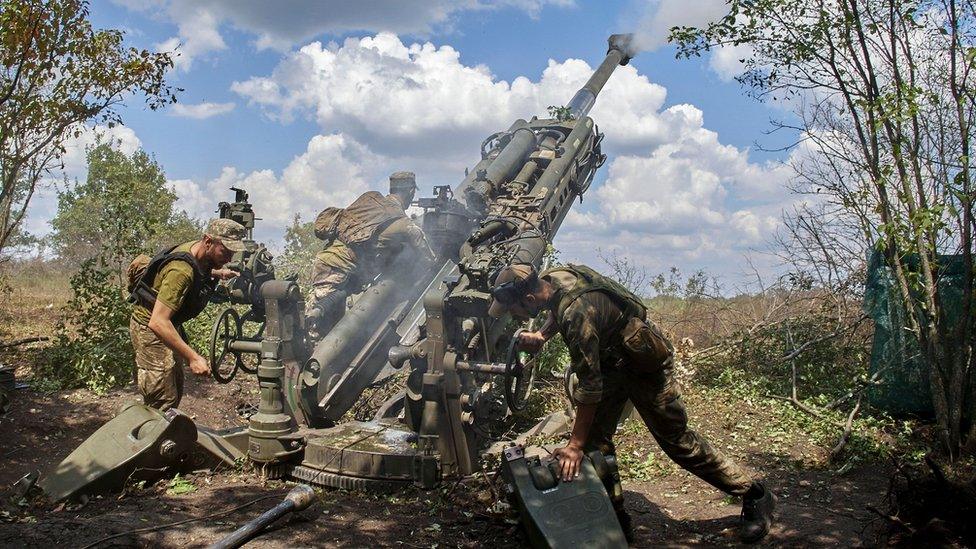
- Published7 September 2022
